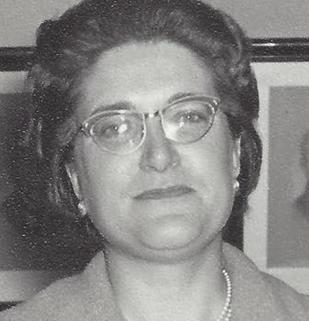In our increasingly diverse world, it is more important than ever to instill diversity into spaces where celebrating diversity isn’t so obvious, such as the realm of scientific discovery. In fact, diversity offers unique perspectives and insights that can play a pivotal role in driving scientific innovation and creating new knowledge.
In this article, we shine a spotlight on the remarkable journey of Carmen Adelina Gutiérrez Alonso Moreno, the first Chilean woman who received a degree in Astronomy. Alonso, or better known as Adelina Gutiérrez until she married husband Hugo Moreno, was a trailblazer in the astrophysics community serving as the first Chilean to obtain a doctorate in astrophysics and also the first woman elected to the Chilean Academy of Sciences.
Her early career began after attending the María Auxiliadora school in Santiago de Chile, and specializing in her favorite subjects, mathematics and physics. Later on, she entered the Pedagogical Institute of the University of Chile to train as a teacher from which she graduated from as a state-approved professor of physics and mathematics in 1948. While attending University, she met scientist Hugo Moreno León who would later become her husband and marry in 1951.
Initially, she began her career by doing the menial tasks of her colleagues, including her husband, at the National Astronomical Observatory. Overcoming the gender barriers in the exclusionary culture of the scientific world, Gutiérrez began to undertake her own individual research in the field, eventually publishing her first paper, Astronomical Measurements Made with Theodolite. This initial publication served as a pivotal first step in her research career which eventually earned her a doctorate degree.
Although earning this distinguished degree enabled her to pursue her career in research, it did so at a great personal cost. While studying for her doctorate at Indiana University in the United States, her husband and children stayed behind in Chile, something that was traditionally unprecedented 50 years ago. Fortunately for Gutierrez, she had the support of her husband and children to pursue her education and career, but this is not always the case for most women. Even now, in our modern age, 43 percent of women left their full-time STEM jobs within 4-7 years of the birth of their first child, in comparison to 23 percent of men with children. It is important to recognize that women, especially women of color, in STEM fields face immense barriers in advancing their education and career, to a greater degree than men.
After being awarded her doctorate, Gutiérrez went on to establish the first Bachelor’s Degree in Astronomy offered in Chile in 1965 and published over 60 papers, books, and study manuals. Adelina Gutiérrez Alonso serves as a role model to women pursuing higher degrees in a male dominated field and is testament to the value of gender and racial diversity in STEM fields. Although Gutierrez’s contributions are recognized in progressing underrepresented fields, she shouldn’t be painted as a one-off exception in history. Women of color in STEM fields should be normalized and it is evident that even to this day there is still a lot more to be done in promoting and empowering women of color in science.
Following in Gutierrez’s footsteps, some initiatives that can be taken to attract and sustain underrepresented groups in STEM include implementing outreach programs, mentorship opportunities, and scholarships. Furthermore, by integrating the contributions of pivotal women such as Gutierrez into our educational curriculums increase visibility and representation for future generations.
References:
Adelina Gutiérrez Moreno – Biography. Maths History. (n.d.). https://mathshistory.st-andrews.ac.uk/Biographies/Moreno/
Greenberg, P. (2020, November 28). Adelina Gutiérrez Alonso: Google Doodle celebrates Chilean scientist and astrophysicist’s 95th birthday. Time Bulletin. https://www.timebulletin.com/adelina-gutierrez-alonso-google-doodle-celebrates-chilean-scientist-and-astrophysicists-95th-birthday/
Karlis, N. (2019, February 20). Why women are dropping out of stem careers. Salon. https://www.salon.com/2019/02/19/why-women-are-dropping-out-of-stem-careers/




